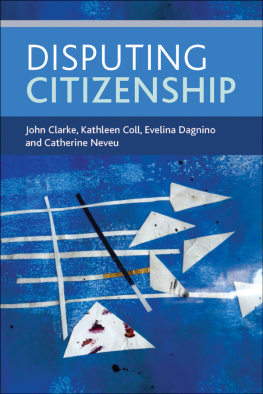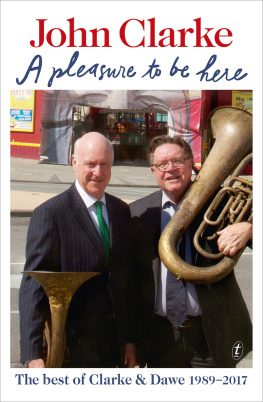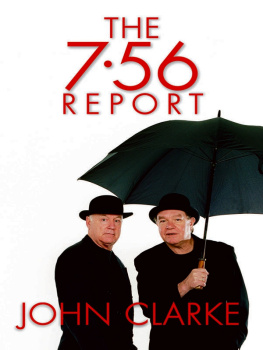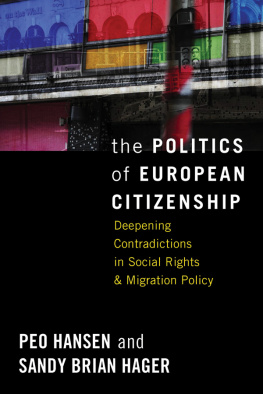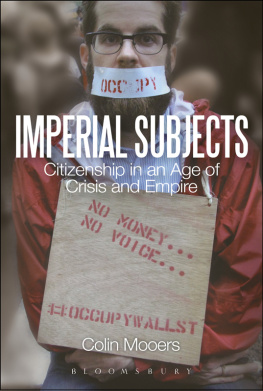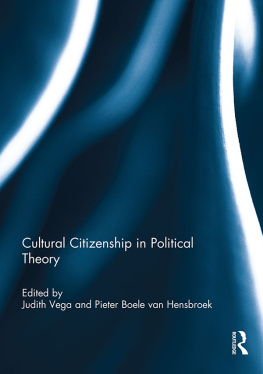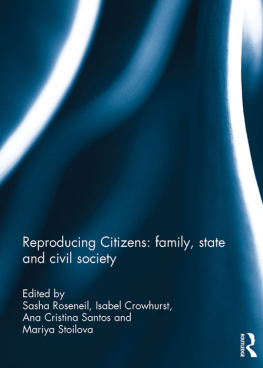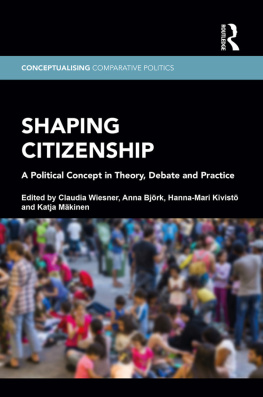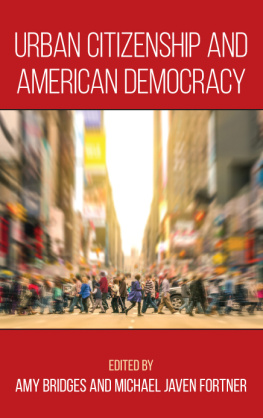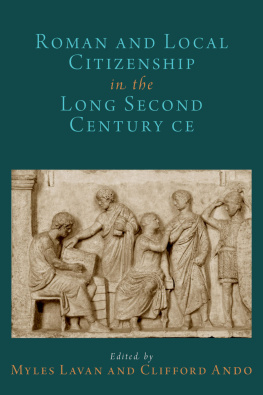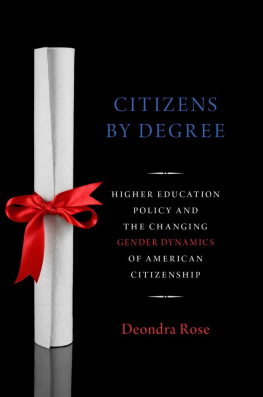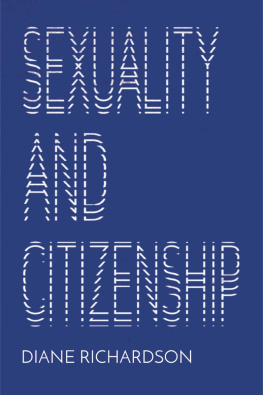DISPUTING CITIZENSHIP
John Clarke, Kathleen Coll, Evelina Dagnino and Catherine Neveu
First published in Great Britain in 2014 by
Policy Press University of Bristol 6th Floor Howard House Queens Avenue Clifton Bristol BS8 1SD UK Tel +44 (0)117 331 5020 Fax +44 (0)117 331 5367 e-mail
North American office: Policy Press c/o The University of Chicago Press 1427 East 60th Street Chicago, IL 60637, USA t: +1 773 702 7700 f: +1 773-702-9756 e:
Policy Press 2014
British Library Cataloguing in Publication Data
A catalogue record for this book is available from the British Library
Library of Congress Cataloging-in-Publication Data
A catalog record for this book has been requested
ISBN 978 1 44731 255 0 epub
The right of John Clarke, Kathleen Coll, Evelina Dagnino and Catherine Neveu to be identified as authors of this work has been asserted by them in accordance with the 1988 Copyright, Designs and Patents Act.
All rights reserved: no part of this publication may be reproduced, stored in a retrieval system, or transmitted in any form or by any means, electronic, mechanical, photocopying, recording, or otherwise without the prior permission of Policy Press.
The statements and opinions contained within this publication are solely those of the authors and not of the University of Bristol or Policy Press. The University of Bristol and Policy Press disclaim responsibility for any injury to persons or property resulting from any material published in this publication.
Policy Press works to counter discrimination on grounds of gender, race, disability, age and sexuality.
Cover design by Qube Design Associates, Bristol
Front cover: image kindly supplied by Jean-Louis Aucagos
Readers Guide
This book has been optimised for PDA.
Tables may have been presented to accommodate this devices limitations.
Image presentation is limited by this devices limitations.
For Fu, who was there at the very beginning.
Contents
Any project like this accumulates many debts in the process of coming to completion. Ours begin with the Fondation Maison des Sciences de lHomme who agreed to fund our initial collaboration as an International Programme of Advanced Studies in 2007. In particular, M. Jean Luc Racine offered warm collegial support for us and our work during our period of residence. The Fondation also provided accommodation for the three visiting researchers at Maison Suger and, via its partnership with Columbia University, arranged for a wonderful working environment at Columbias Institute for Scholars at Reid Hall. There, we benefited from the support of three wonderful women Danielle Haase-Dubosc, Mihaela Bacou and Naby Avcioglu. We are also grateful to the colleagues who took part in the workshop/Journes dtudes at Maison Suger in June 2007, most of whose work subsequently appeared in a special issue of Citizenship Studies in 2011 on Questions de Citoyennet/Questions of Citizenship.
We are also grateful to the many people who have talked to us about this work, not least the participants at the panels of papers that we presented at the Crossroads in Cultural Studies conference in 2008 and the American Anthropological Association in 2009. We would like to thank the institutions that provided financial support for our participation in these conferences: IIAC (EHESS-CNRS); the Open Universitys Department of Social Policy and Criminology and Centre for Citizenship, Identities and Governance; Stanford University; and the University of Campinas. Our institutions also enabled in diverse ways the two periods that we were able to spend together working collaboratively on the book in Long Bay, Jamaica and Florianpolis/Santinho, Brazil.
Evelina Dagnino would like to thank her friends and colleagues from the University of Campinas in Brazil Ana Cludia Chaves Teixeira, Gabriel Feltran, Luciana Tatagiba and Rachel Meneguello for both their intellectual and loving support.
Collectively, we have many people to thank for sustaining our interest in, engagement with and enthusiasm for these issues: Etienne Balibar, Ghassan Hage, Ann Holder, Engin Isin, Janet Newman, Anu Sharma, Sophie Wahnich and, not least, the members of the Oecumene project at the Open University.
Finally, the other three authors owe a special debt to Catherine Neveu for her exceptional work in translating the original French sources that we use in the book.
Milton Keynes, San Francisco, So Paolo and Paris/Tours,
January 2013.
We begin by posing the question addressed to us by a friend: Why another book on citizenship?. It is indeed true that, in recent years, citizenship has been the focus of a torrent of books, articles and conferences, such that adding one more to this overwhelming flow looks like a strange decision. But part of our answer to the question is that this flourishing interest in citizenship is one of the ways in which it looks important and influential, and, indeed, serves as a sort of keyword for many different scholarly interests. Indeed, even a brief survey of recent publications indicates the diversity of concerns that can be articulated through citizenship: the environment; sexuality; urban politics; welfare reform; the rise of neo-liberal politics and policies; migration and migrants rights; questions of nation, nationality and post-nationalism; the changing forms of the state; and the rising significance of civil society. In very different ways, such focal points take up, borrow and bend well-established connections between citizenship and questions of (in)equality, giving them new life and new subjects, and engaging them in new conflicts. This suggests something of the field of possibility that can be articulated through the concept of citizenship.
The proliferation of work on citizenship is part of our answer in a second way. The amount and diversity of academic work on the topic suggests something of the profound turbulence that swirls around the idea of citizenship. It is certainly not merely an academic concept. It circulates widely, is claimed and much sought after, and is the subject of never-ending attempts to revive, reform or reinvent it. It certainly does not lead a quiet life and this sense of turbulence is a key part of what draws us to the word. It acts as an urgent political and intellectual point of connection. Let us take this point about connection a little further. Citizenship is conventionally understood as a form of relation, most often as a relation between the citizen and the state, but also as a relation of membership (of a society or political community). But citizenship acts as a point of connection indeed, a point of mobilisation for many individuals and groups who identify themselves as citizens when they act, name themselves as people who would be citizens in demanding citizenship, or demand that citizenship be enlarged, enhanced or transformed to engage with other issues, identities and desires. Citizenship is thus a potent keyword in social, cultural and political terms, naming actual or imagined possible relationships.
Citizenship is, for us, a connective word in a more specific sense: it connects and draws together the four authors of this book from their very diverse locations. We occupy different places in the world Europe and North and South America; occupy different academic locations in disciplinary and institutional terms; and have arrived at this collaboration from different entry points to the issue of citizenship. This makes for a rather odd sort of book, not least in the sense that it is a cross-national collaboration that is not structured as a comparative text. Although we draw on disputes over citizenship from our different national and regional contexts, this is not an attempt to compare citizenship between Brazil, France, the US and the UK. As will become clear, we make use of these different national and regional formations, histories and trajectories to dispute citizenship, making these differences rub up against one another to illuminate different aspects, issues and problems of citizenship. In short, we think our differences animate the study of citizenship, rather than merely exemplifying it.

